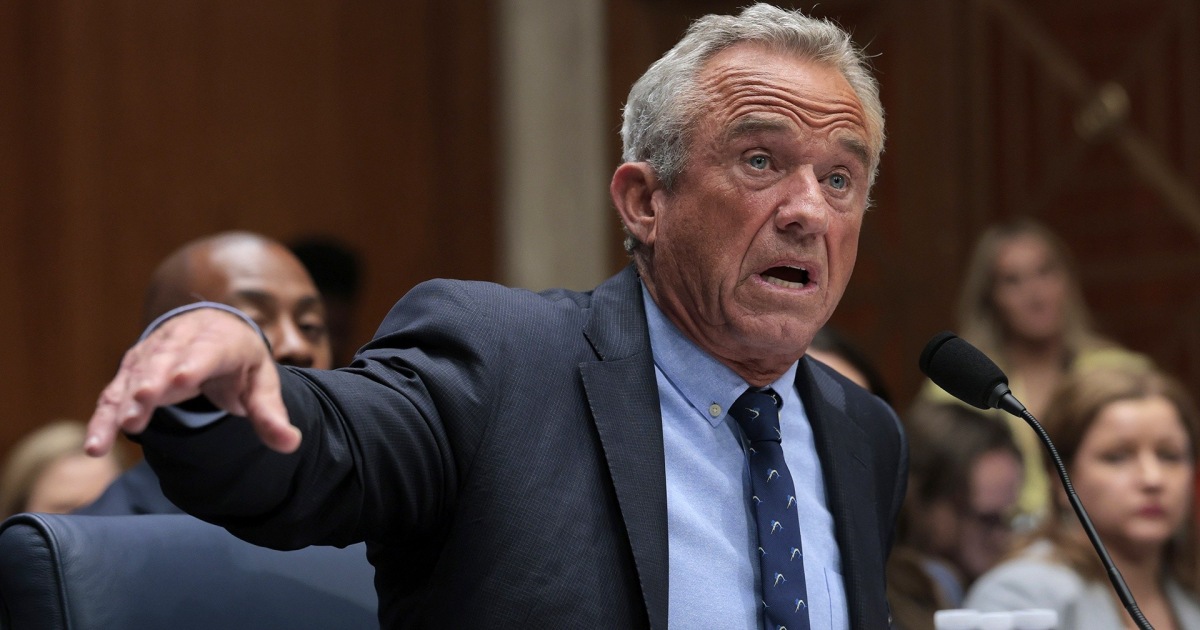RFK Jr. Challenges Conventional Wisdom: Why He Says to Question Medical Guidance
Robert F. Kennedy Jr., environmental lawyer and prominent vaccine skeptic, has reignited debate by urging Americans to scrutinize medical advice from health authorities. In recent public appearances, Kennedy argued that blind trust in institutions like the CDC and FDA could compromise personal health freedoms. His comments, made during a June 2024 speech in Nashville, challenge the status quo amid growing public skepticism toward established medical narratives.
The Case for Independent Health Research
Kennedy’s central thesis hinges on what he calls “the corporatization of medicine.” He points to a 2023 Journal of Medical Ethics study showing 52% of FDA advisory committee members had financial ties to pharmaceutical companies. “When regulators rotate through industry jobs,” Kennedy stated at a recent town hall, “we’re not getting independent science—we’re getting marketing brochures disguised as public health policy.”
Supporting this perspective, Dr. Linda Wastila, a pharmacoepidemiology professor at the University of Maryland, notes: “Transparency gaps in clinical trial data remain concerning. About 30% of completed trials go unreported, according to NIH audits—that’s selective science at best.”
- Pharmaceutical industry spending on physician payments totaled $12.6 billion in 2022 (Open Payments Data)
- Only 43% of Americans trust health information from federal agencies (Pew Research, 2024)
Pushback From Medical Establishment
The American Medical Association swiftly responded to Kennedy’s claims. “Dismissing decades of peer-reviewed research because of hypothetical conflicts is dangerously reductive,” said AMA President Dr. Jesse Ehrenfeld. He cites CDC data showing vaccines prevented over 300,000 COVID-19 deaths in 2021 alone.
Public health experts warn that sowing distrust could have tangible consequences. A 2024 Lancet study linked regions with low institutional trust to 28% higher mortality rates during health crises. “There’s a difference between healthy skepticism and conspiracy thinking,” argues Harvard epidemiologist Dr. Ranjani Paradise. “The latter kills.”
Historical Context of Medical Skepticism
Kennedy’s stance taps into a long tradition of American medical populism. From the 19th-century anti-vaccination leagues to thalidomide survivors of the 1960s, public health controversies often follow a predictable cycle:
- Initial institutional overconfidence
- Revelation of harms or conflicts
- Erosion of public trust
- Policy reforms (usually delayed)
The opioid crisis exemplifies this pattern. FDA-approved OxyContin was later revealed to have caused 245,000 overdose deaths between 1999-2021 per CDC mortality data—a catastrophe Kennedy frequently references.
Balancing Skepticism and Scientific Consensus
Medical ethicists suggest a middle path. “We should teach people to evaluate evidence hierarchies,” proposes Georgetown University’s Dr. Maya Goldenberg. “Randomized controlled trials aren’t perfect, but they’re vastly more reliable than anecdotal YouTube testimonials.”
Recent innovations aim to bridge this trust gap:
- FDA’s 2024 transparency initiative requiring real-time clinical trial data
- State laws prohibiting “ghostwriting” of medical journal articles
- Blockchain pilots for immutable vaccine safety records
What This Means for Public Health Discourse
The RFK Jr. controversy reflects broader societal shifts. A 2024 Edelman Trust Barometer shows 61% of respondents now “verify health information through multiple sources”—up from 39% in 2019. This trend has birthed parallel phenomena:
Positive outcomes: More patients asking clinicians about drug alternatives
Negative outcomes: Delayed cancer treatments due to misinformation
As Stanford sociologist Dr. Aaron Kivisto observes: “We’re witnessing the democratization of medical knowledge—with all its promise and peril.”
The Path Forward: Informed Vigilance
Moving forward, experts recommend concrete actions:
- Mandating conflict-of-interest disclosures for all guideline authors
- Funding independent replication studies for high-impact research
- Teaching media literacy alongside science education
Kennedy’s campaign, while controversial, has undeniably amplified calls for systemic reforms. Whether this leads to constructive dialogue or deeper polarization may depend on institutions’ willingness to address legitimate concerns while combating misinformation.
For readers seeking to navigate these complex issues, the nonpartisan Alliance for Science offers evidence-based guides to evaluating medical claims—a resource worth consulting before making health decisions.
See more WebMD Network



